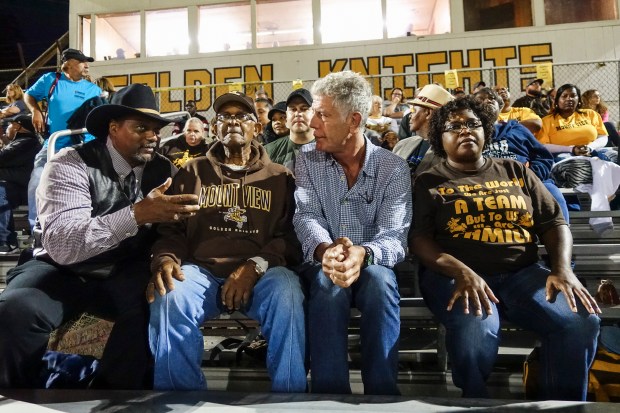Synopsis: Anthony Bourdain explores the center of “another America,” rural West Virginia, a place city dwellers often dismiss as an existential enemy. Tony finds instead a state that is welcoming and kind. Much more complex than just “the heart of guns, God, and Trump country,” West Virginia is both heartbreaking and beautiful, a state that has been woefully misunderstood.
Bourdain on political trends in West Virginia:
- “Guns are a fact of life around here, whether as a means to defend your isolated home, get yourself dinner when there’s no place to get it, or just for the fun of shooting stuff. The feeling that gun ownership is an absolute right, immutable and non-negotiable, runs deep here.”
- “However you feel about gun rights or access to weapons, there is an undeniable visceral thrill to blowing shit up. People who like guns like them for a reason.”
- “Hard-line on the Second Amendment and religious rights, but pro-union with a record of voting reliably blue— those days are over.”
Bourdain on the welcoming nature of West Virginians:
- “Here, in the heart of every belief system I’ve mocked or fought against, I was welcomed with open arms by everybody.”
- “There’s an easy familiarity between people here. Everybody knows everybody else’s family, asks after their kids by name. Mixed couples are common—it’s confusing.”

Bourdain on two of the state’s biggest passions, religion and football:
- “I mentioned God and guns and Trump, but I forgot another big one: football.”
- “Christian values mean something here; they’re practiced in the street and at home.”
Bourdain on Appalachia’s historic food culture and its future:
- “Appalachia has a rich and deep culinary culture, increasingly fetishized, riffed on, and appropriated for the genteel tastes of a hipster elite, willing to pay big bucks for what used to be and in many cases still is the food of poverty.”
The most quotable of sidekicks:
- Larry Thompson: “These kids understand that there aren’t a lot of resources here. Before, you could feel the dreariness that lingered around the community, but now, with these boys winning and the work ethic they’re putting in, you can feel the support.”
- Anthony Bourdain: “What’s tougher: life or football?” Mica “Woody” McLaughlin: “Life, definitely. There’s no half-times in life, there’s no time-out in life, there’s none of that.”
- Elaine McMillion Sheldon: “Rarely people like myself are the ones controlling our narrative.”
- Elaine McMillion Sheldon: “If you Google Appalachia, to this day you’re going to see dirty-faced kids, barefoot on a porch, shaking Lyndon B. Johnson’s hand. There’s a lot more to Appalachia than that.”
- Nick Mullins: “It’s been said, but it’s just not been hit home; it’s just how much people in this area have been exploited. The land agents who came in and bought up all the mineral rights. The coal and timber companies who started extracting and taking everyone’s labor rights.”
- Justin McMillion: “It’s a whole lot of America here.” Anthony Bourdain: “Not mine, but I like it here.”
- Justin McMillion: “That’s one of the greatest things about West Virginia. We can enjoy whatever we want to enjoy. I’m not trying to force my opinions on anybody else. That being said, we will defend ours.”
- Allen Lardieri: “I gave up on political saviors a long time ago. … If people get frustrated enough, they’re gonna put someone in there who’s not like you.”
- Mike Costello: “We see that ramps harvested in West Virginia are selling for 30 dollars a pound in New York?! What’s West Virginia seeing from that? Probably a guy who got about 2 dollars a pound.”
- Mike Costello: “The way Appalachian food has always worked is you work within your means and create something pretty special out of what you have at your disposal.”